Everything Going Wrong With New Business Should I Continue

As an entrepreneur, it's easy to feel like you're constantly doing something wrong.
Your product got a 3-star review instead of 5 stars. Your best programmer quit. You forgot to check in with your development team yesterday.
You're not perfect.
But there are a few big mistakes you need to watch out for and stop in their tracks.
I definitely didn't sail through starting my own businesses without some trouble along the way.
You will make mistakes.
As I've said before, it's how you learn from your failures that defines your future success.
In a survey commissioned by TriNet, almost 75% of small business owners said they are confident in their business.
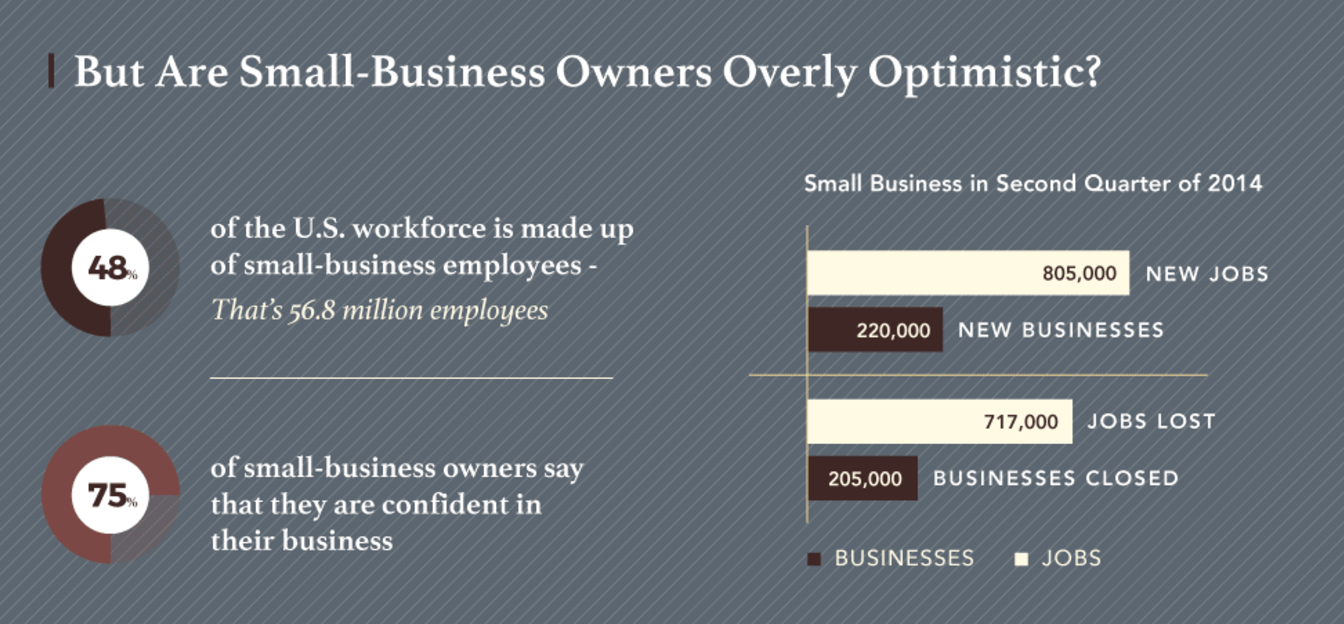
That seems high, but being confident doesn't mean you're a successful entrepreneur.
It's an important factor for winning over investors and motivating your team, but confidence does not replace a solid business plan.
In this article, I'm going to cover 6 mistakes that you will likely make at some point in your business.
Here's what to watch out for and how to fix it if you find yourself in any of these situations.
Not planning far enough ahead
Having a plan is essential to running a successful business.
It needs to be an actual, written-down business plan. Shockingly, only 33% of business owners currently have a written strategy!
By having a business plan, you could double your chances of success.
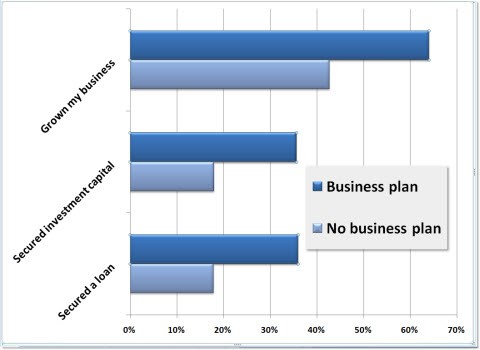
Your plan doesn't need to be 100 pages or anything like that. Even having a few pages of goals written down is better than nothing at all.
You need to plan for the short- and long-term health of your business.
What do you want to accomplish three months from now? Six months? A year? Five years?
Your business plan isn't just about how much money you want to make.
It includes things like how you'll earn money.
Will you rely on only software subscription income? Will you be ad supported? Will you work with an affiliate program? Will you invest in content marketing?
It includes setting milestones, like when you'll reach 100 users or 10,000 users.
It also includes planning for the distant future in the way of an exit strategy.
An exit strategy, otherwise known as a succession plan, details what will happen to your business after you retire or decide to leave the company.
Almost two-thirds of entrepreneurs don't have a formal succession plan.
If you're expecting a buyout or acquisition of your company, advisors say to start working on your succession plan 10 years in advance!

If you don't have a solid succession plan, your business will likely fail if you left it.
Having a plan that covers all your business's financial and operational goals is critical to long-term success in today's competitive marketplace.
Changing strategies too often
This is something I see frequently.
By all means, if a tactic you're trying out isn't working, abandon it and try something else. I'm not suggesting you should never change anything.
But many people aren't giving their strategies enough time to show real results before they give up.
Let's use blogging as an example.
When I first started blogging for Crazy Egg and Quick Sprout years ago, no one read it. It was crickets for the first few months.
That's how content marketing starts out.
You need to put in a lot of effort with zero reward for a least a few months, often longer.
It can take years before a blog will make you money, and it could be months before a B2B blog returns one good lead.
But over time, content marketing works.
I'm proof of that!
The statistics have been well-documented. Businesses that publish 16+ blog posts a month earn an average of about 4.5X more leads than those that publish 0-4 a month.
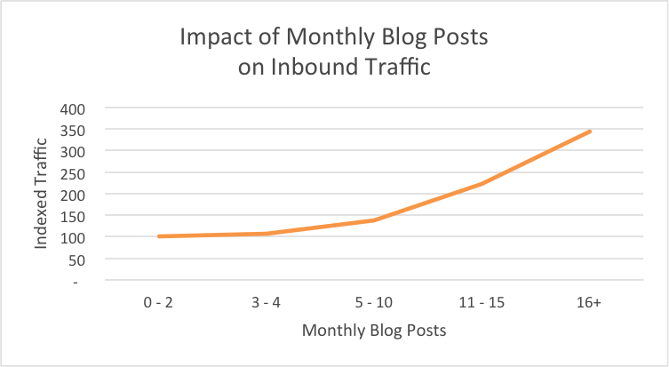
It takes a while to build momentum and drive traffic to your blog.
This is where determination and believing in your strategy come in. If you write 5 blog posts and get no sales, will you give up?
You can't think that way when it comes to marketing your business.
Give your ideas time to generate results.
Wait 3-6 months before starting to evaluate your blog's performance. Give it 6-12 months before passing the verdict on whether it's successful or not.
If you're still not generating good leads at that point, make some changes. Research what types of posts perform well in your industry. Create some special offers to promote.
Try new things, but only after you've given your current strategies the time they deserve.
Don't have a blog yet and wondering how to set one up for your business? I have a step-by-step tutorial and a video with some tips to get started.
Not taking action
Even worse than not having a plan or changing your plan too often is never doing anything at all!
So called "wantrepreneurs" do a lot of research about starting a business but rarely act on it.
Many people like the idea of being their own boss and owning a business, but they don't want to put in the work to get there.
62% of millennials have thought about starting their own business.
However, less than 2% of millennials are actually doing it, according to a study by the Small Business Administration.
Does that sound like you?
Maybe you've been dreaming of starting a consulting business. You start researching how to create a website or where to find clients.
You write a 90-page business plan for everything you need to do to achieve your goals.
You might have a big binder or folder on your computer full of notes and to-do lists.
But do you ever check anything off those lists?
Are they items that even matter?
Researching a new business idea before jumping in is a great idea, but you can't get so bogged down in research that you don't take any action.
Once you've researched where to find clients, great! Go find them!
Planning means nothing without action.
Think of it like your New Year's resolutions.
According to a University of Scranton survey, 45% of Americans regularly make New Year's resolutions, but only 8% of people feel like they succeed in keeping them.
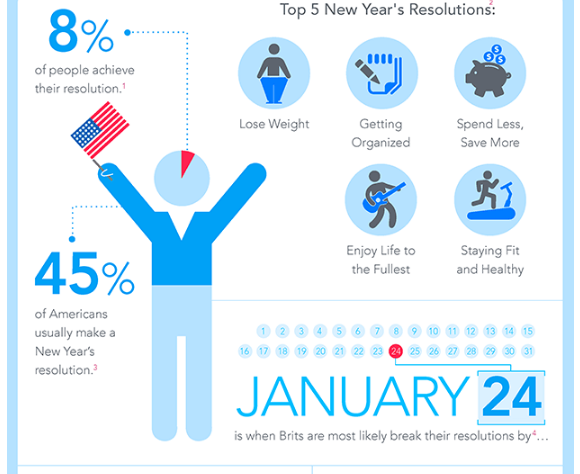
42% of the people who do make resolutions say they always fail at keeping them.
Why would they continue to make resolutions if they fail at them every single year?
Some people think planning is working. They think by making a plan, they've done something. They feel accomplished.
You could make a plan to lose 10 pounds by running three times a week. But unless you actually hit the pavement and go for those runs, nothing changes.
It's the exact same thing in business.
Discounting too much
Offering discounts on your products or services can be a great strategy to attract new customers, especially for ecommerce businesses.
68% of consumers even think coupons positively impact your brand.
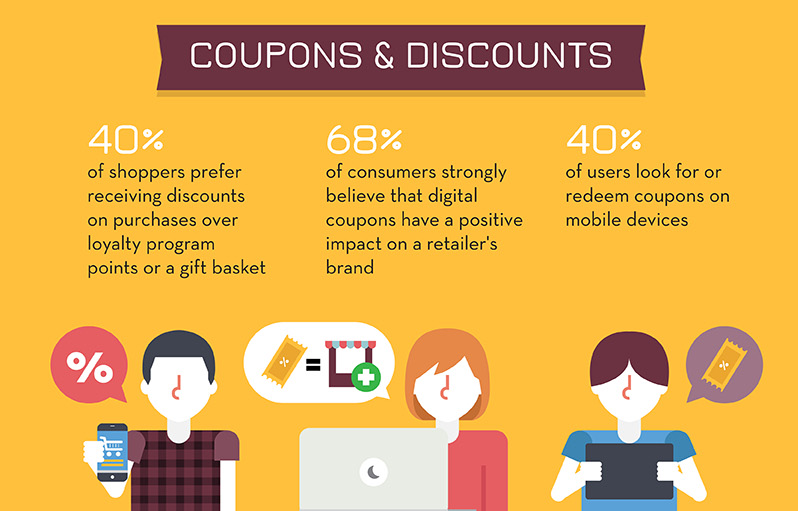
Offering coupons on digital products can be a good strategy for quickly acquiring a lot of users for your product.
It has even been scientifically proven that receiving coupons increases oxytocin levels by 38%, resulting in a feeling of happiness.
Many software companies offer a discount to purchase an annual plan instead of a month-to-month plan, like Leadpages.
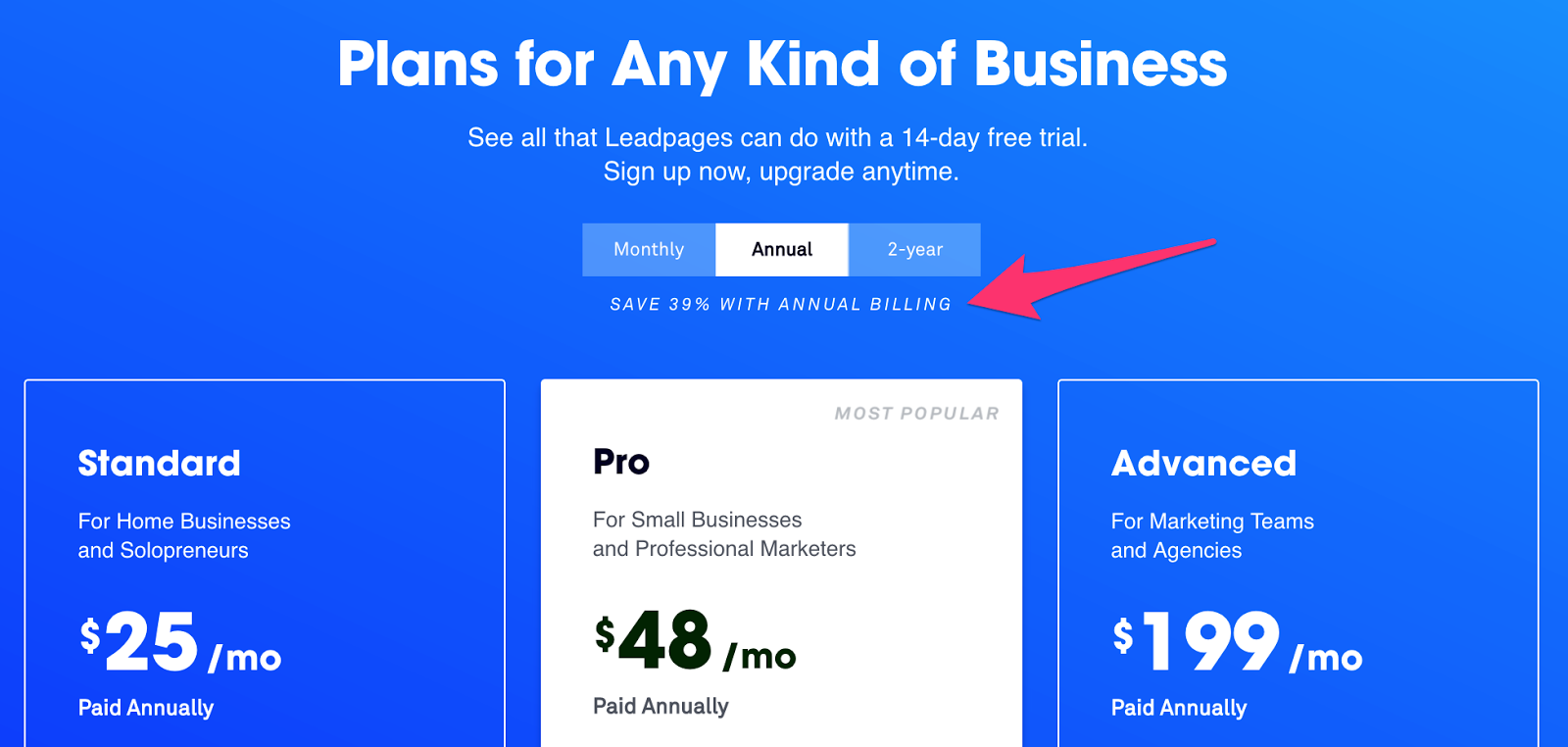
The savings encourages users to prepay for the whole year even if they didn't plan to at first.
Discounts like these can be effective when used in moderation.
You need to ensure your profit margin still remains healthy on discounted products or services.
Some entrepreneurs think heavily discounting their products to get new users will pay off in the long run, even if they're losing money for a bit.
This isn't the right way to do it!
The people who take advantage of your huge discount will expect that price forever.
They will wait around for a big sale to renew their subscription or buy a new product since they know one will be coming up soon. This only serves to hurt your long-term brand credibility.
An example of this in retail is JCPenney.
They were criticized for artificially inflating price s and having a big sale to make consumers think they were getting a bargain.
In software, it's popular to have a freemium plan.
Freemium means a free plan that still allows the user to benefit from the product.
A good example is Dropbox. You can use the service just like a paying customer for free, but you receive a reduced amount of storage.
Over time, those freemium customers often become paying customers. A conversion rate around 4% is quite good.
Spotify has an amazing nearly 27% conversion rate!
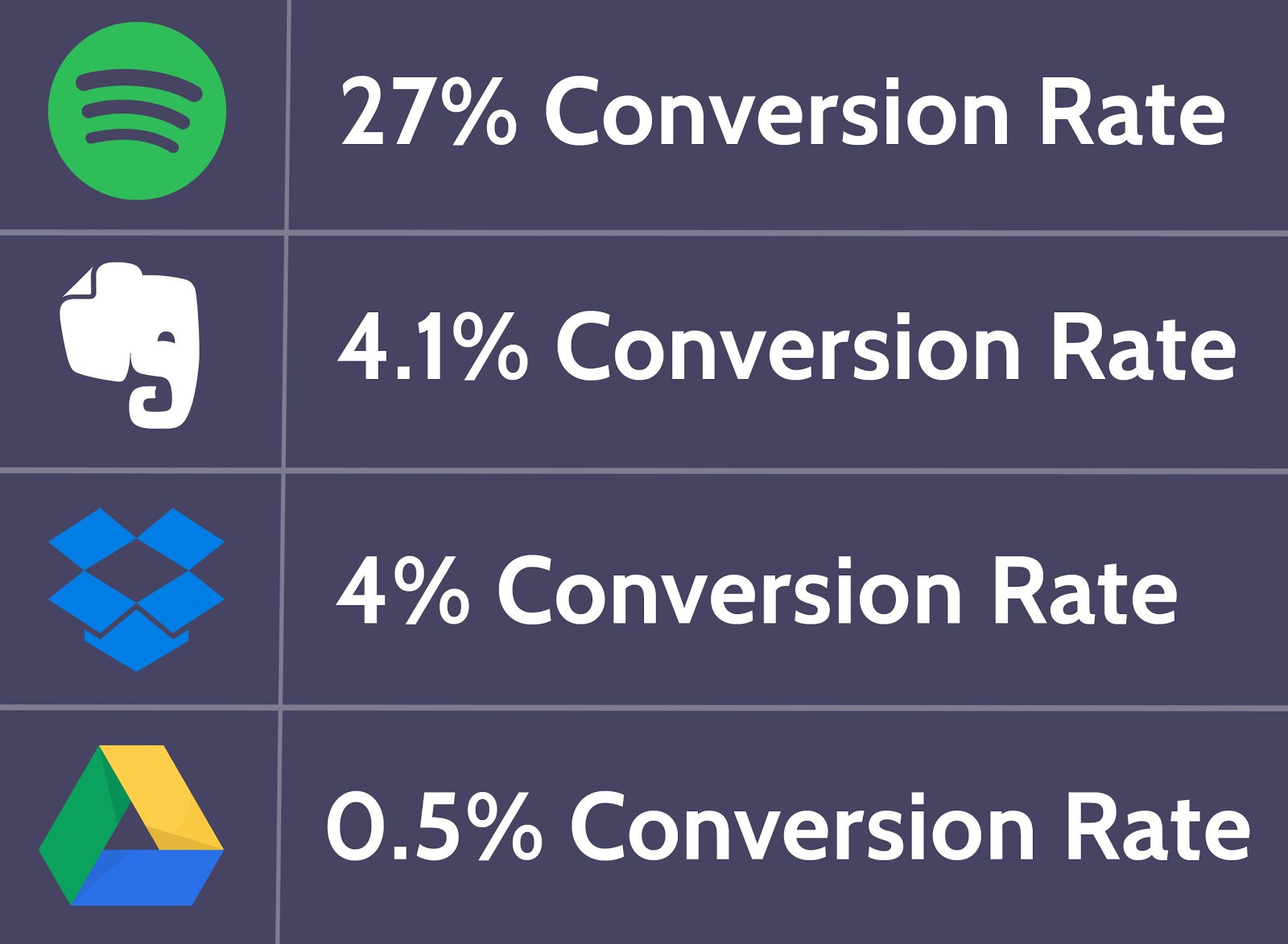
One of my biggest mistakes with Crazy Egg and Kissmetrics was not offering a free plan right away.
We added it later, but having it from the beginning could have helped us grow our user base much faster.
A free plan lets users try before they buy upgraded features. It also greatly increases the likelihood that they'll refer your product to others.
The trick is to make your product useful on the free plan but still have enough premium features to make it attractive for users to upgrade.
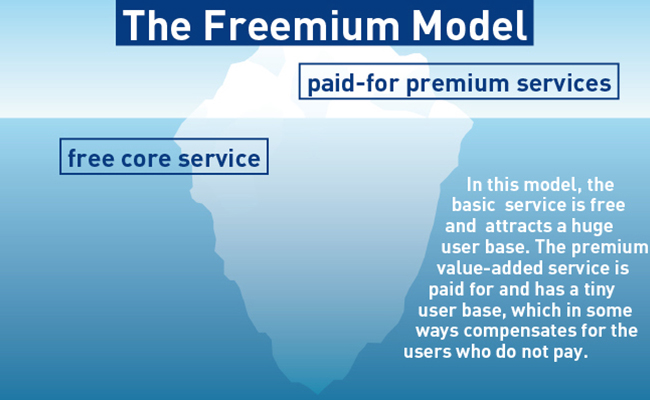
It's crucial to know your numbers and how profitable this model is for you.
Your paying users need to carry the weight of the free ones. Make sure you're still making money when you factor that in!
Not outsourcing enough
I was guilty of this at first.
I tried to do everything in my businesses, except for the things I obviously couldn't do, like programming an app.
I figured I should make use of all my sales and marketing skills. It would be wasteful to hire someone to do those things when I knew how to do them.
I was so wrong!
Outsourcing has a negative connotation like you're taking away work from others. It doesn't have to be that way at all.
Freelancing has risen in popularity in recent years, with 35% of the American workforce now considering themselves freelancers.
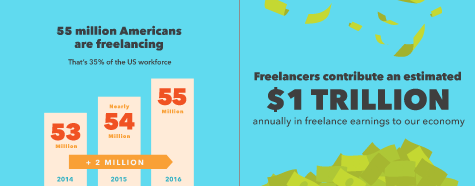
By outsourcing tasks in your business to freelancers, you're helping contribute to their businesses and career growth, too.
But touchy-feely aspects aside, learning to outsource is important.
As an entrepreneur, you need to be steering your business's growth and innovation.
If you have employees, you need to focus on leadership, not on small tasks you don't really need to do.
If you're the only person in your business, you can't do it all either.
Up to 56% of entrepreneurs admit they have knowledge gaps in certain areas, like legal or insurance matters. But 66% of them won't consider outsourcing those tasks!
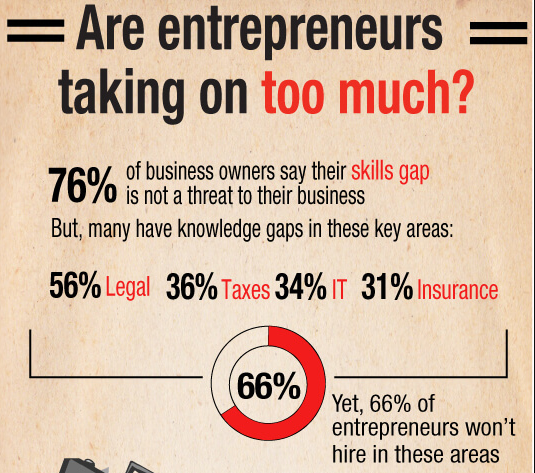
That's crazy!
There's no reason for you to stumble through tasks you're not sure how to do when you can hire someone who knows how to do them.
Outsourcing frees up your time so you can spend more of it growing your business.
Some entrepreneurs feel like no one can do a good enough job. You have to overcome perfectionism to be successful.
Outsourcing can actually be cheaper than doing it yourself.
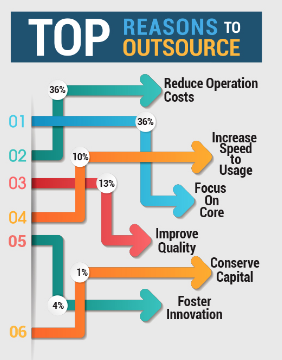
Let's say you're a consultant who bills $140 per hour for your services to clients.
Since you bill hourly, you only make money when you're working with clients.
It's unreasonable to be 100% billable during business hours, so let's assume you have 5 hours of client work per day that's billable.
That leaves about 3 hours for administrative work, emails, phone calls, marketing tasks, and everything else you need to do to run your business.
What if you hired an assistant to take care of even 1 hour of tasks per day? You pay him or her $20 per hour.
That frees you up to do 6 billable hours of client work per day, earning you an extra $140 per day in revenue, but only costing you an extra $20.
You can see how quickly this adds up!
It's a simplistic example, but the logic fits.
Working too hard
By far the most common mistake I see most entrepreneurs making is working too hard for too long.
I'm no stranger to that myself. I routinely work 10- or 12-hour days, or sometimes even more. There are also plenty of days where I work a regular 8-hour day.
The key is to work longer when you're inspired, not just because you think you're accomplishing more.
That leads to stress and burnout.
A study from the UK found that stress was the top hazardous workplace threa t in 2016.
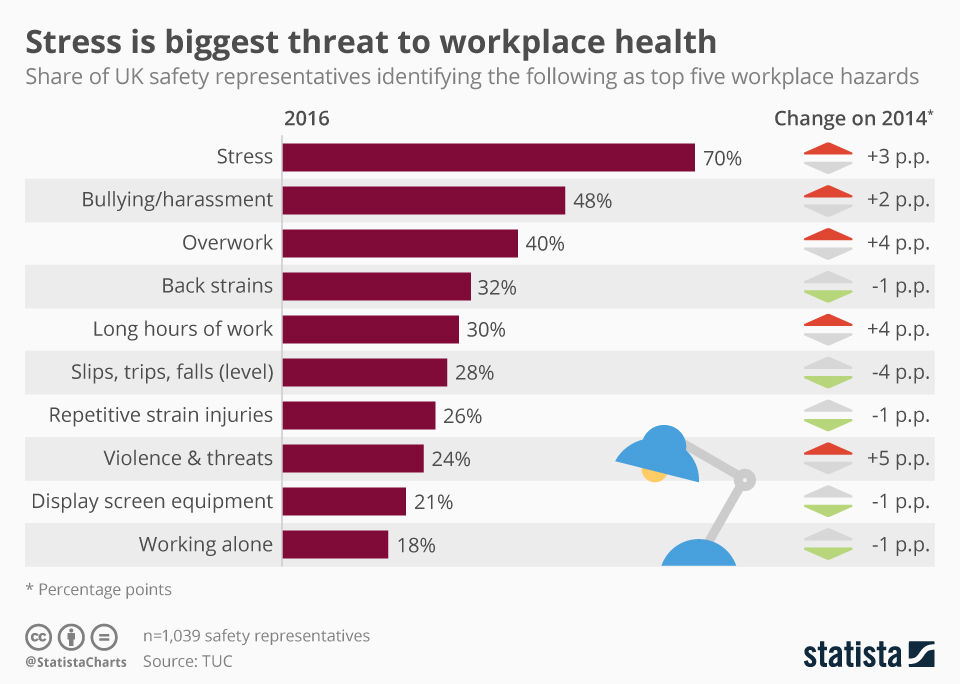
Putting too much pressure on yourself and working long hours create a stressful environment.
Science has found the limits of productivity to be at the 50-hours-per-week mark. After 50 hours, productivity sharply declines.
A person working 70 hours per week actually doesn't accomplish any more than a person who works 55 hours per week.
You may think you're different or that you're always productive, but it's just not true.
Our brains need rest to function at their best.
If you have a long day planned, you can optimize productivity by taking frequent short breaks.
An easy way to implement this in your day is to use the Pomodoro Technique system.
Invented by Francesco Cirillo in the 1980s, the Pomodoro Technique involves working for 25 minutes followed by a 5-minute break.
After 4 Pomodoro cycles, take a 10-minute break before starting the next work session.
You can use the timer on your phone to keep track, or you can have the Tomato Timer website open on your computer.
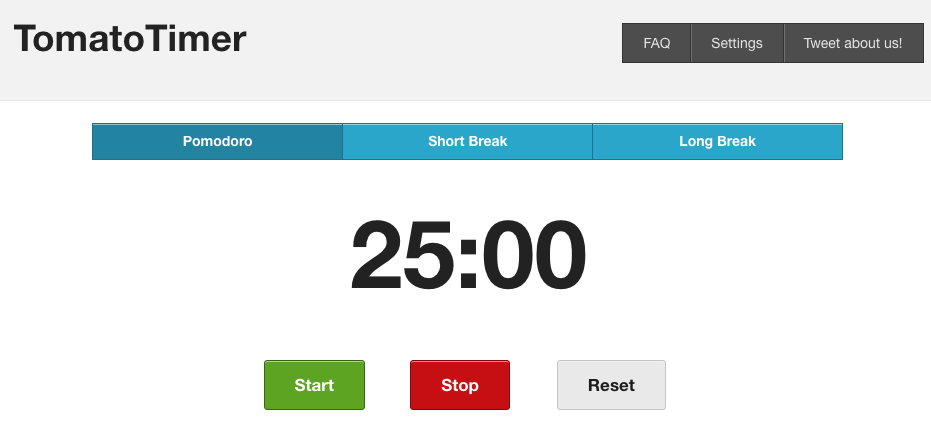
I find this helpful to get into a task I've been putting off.
I tell myself I'm only going to work on it for 25 minutes. Of course, what ends up happening is once I get started, ideas start to flow, and I have no trouble working on it until it's finished.
It's great for beating procrastination and keeping your mind sharp!
You also need to make time for vacations.
You may think you need to be present in your business every day, but the truth is the world won't end if you take a week off.
Like small breaks boost productivity, large breaks (such as vacations) boost the quality of your work and creativity.
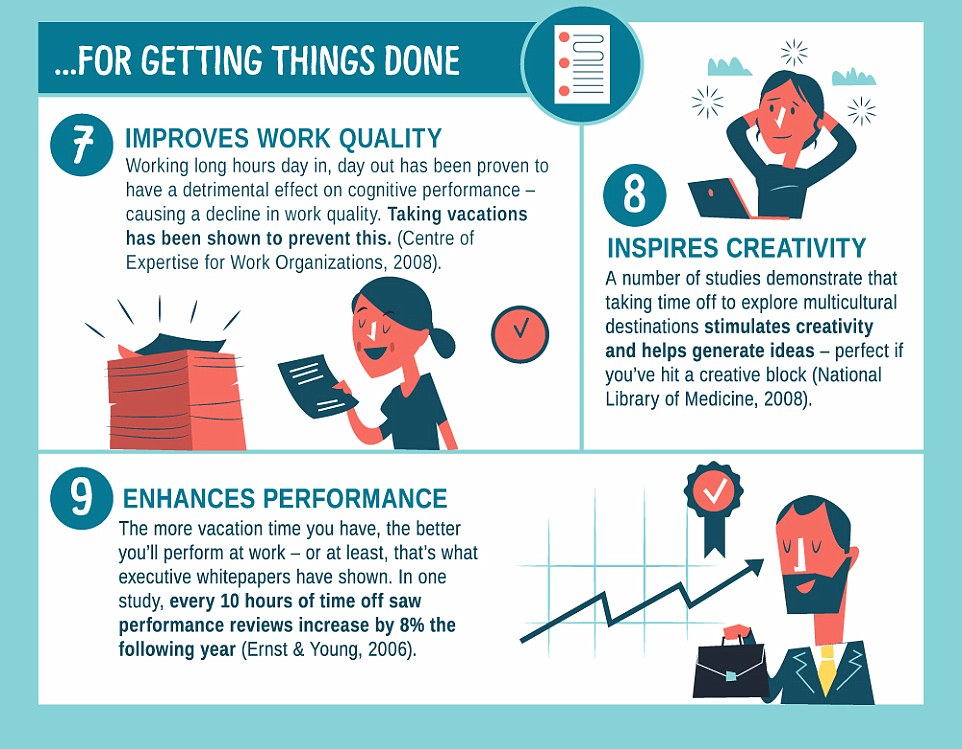
If you're a workaholic, spending less than 50-55 hours at work and taking vacations can be hard to get used to.
I still believe in hustling and working hard every single day to achieve your goals.
Being an entrepreneur often doesn't come with a 2-day weekend and consistent salary like being an employee does.
But if you truly love creating your own products and services, it's ultimately way more rewarding.
I couldn't imagine not being an entrepreneur!
Conclusion
It's not easy being an entrepreneur.
If you've got enough drive and determination to put in the hard work and make it happen, you can succeed.
Don't let mistakes stop you or discourage you. Every entrepreneur makes hundreds, if not thousands, of mistakes!
I made my fair share with two failed businesses before I turned 21, which I've talked about a lot before.
I took what I learned from those experiences and eventually found success with Crazy Egg, Kissmetrics, and now this blog.
You can't look at everything with rose-colored glasses, but you also can't let negativity prevent you from taking any action.
Most entrepreneurs are optimistic about the future, with 76% of respondents expecting to make more money in the next 6 months, according to the Entrepreneurs' Organization.

That doesn't mean you should burn the candle at both ends, either. Take time to relax and recharge.
For me, that means getting at least 9 hours of sleep every night. I function better that way and get a lot more done.
I may work a 12-hour day here and there, but I always make room for sleep.
Whatever you like to do to recharge, make time for that every single day. It will make you more productive.
As an entrepreneur, you have to get comfortable with the fact that you will make mistakes. Some of them will be minor and some could be major, or even enough to end your business.
Learn from those mistakes, and keep pushing on.
What are some business mistakes you've made as an entrepreneur, and how did you solve them?

See How My Agency Can Drive Massive Amounts of Traffic to Your Website
- SEO - unlock massive amounts of SEO traffic. See real results.
- Content Marketing - our team creates epic content that will get shared, get links, and attract traffic.
- Paid Media - effective paid strategies with clear ROI.
Book a Call
Source: https://neilpatel.com/blog/wrong-entrepreneur/
0 Response to "Everything Going Wrong With New Business Should I Continue"
Post a Comment